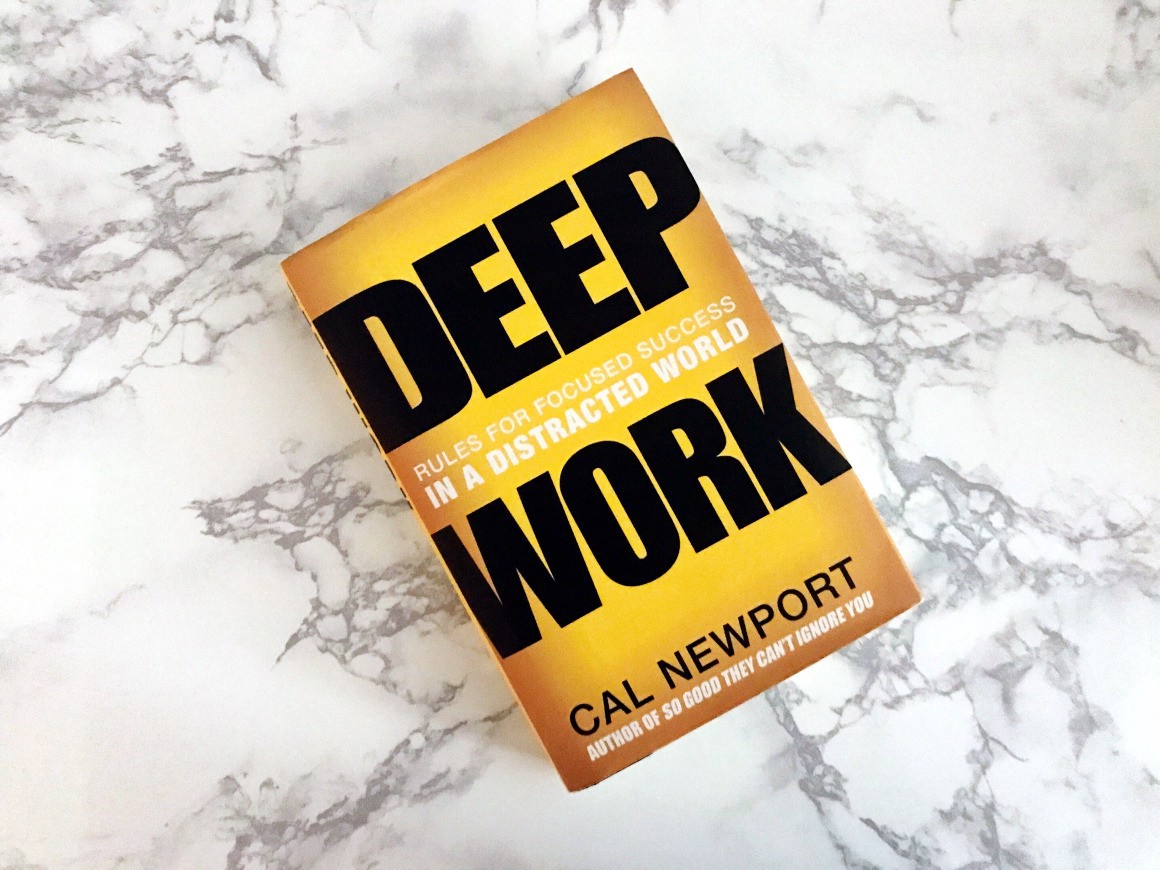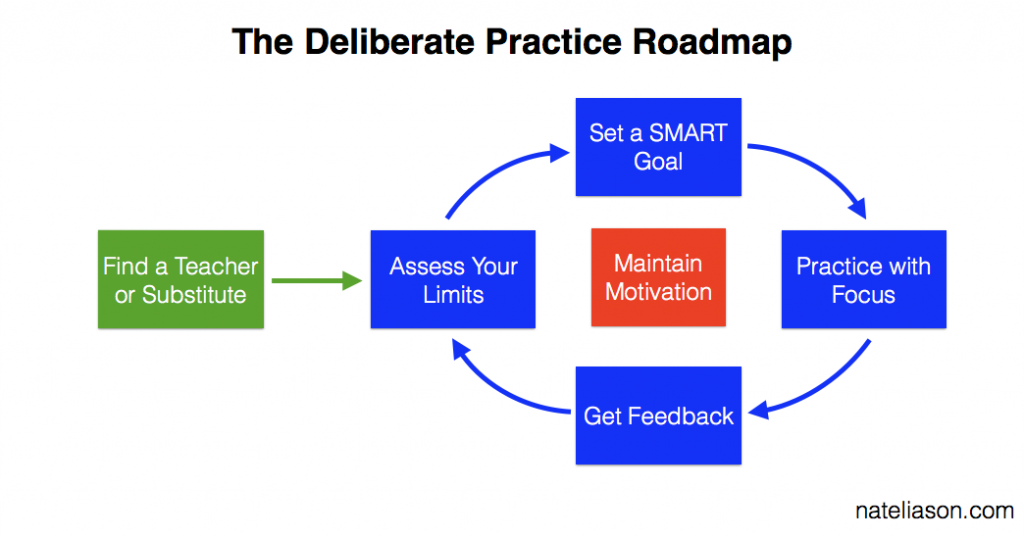
8 Lesson from Cal Newport’s book “Deep Work.”
Cal Newport writes in his book Deep Work that committing to focus on a cognitively demanding task is the meaning of deep work. The book is enlightening. We live in a distracting world full of email interruptions, popup notifications, Instagram updates, and other social media mind clutterers.
Book: Deep Work: Rules for Focused Success in a Distracted World
If we learn to focus our brains on a singular task, deep work becomes a superpower.
1. Deep Work vs. Shallow Work

Cal Newport labels two types of work, one that requires a lot of brainpower, he calls this cognitively demanding task “deep work,” and the other is a non-cognitively demanding (can be done on auto-pilot) type of work he refers to as “shallow work.”
We need to learn to differentiate the types of work we do. Deep work is a singularly focused type of work, a more thorough and strategic dive into one specific thing. It involves introspection and synthesizing various information to produce an output. Deep work is a skill for devoting focus without distraction to a cognitively demanding task.
Shallow work can be defined as less draining cognitively. These could be answering emails, organizing agendas, and ironing and folding clothes, the type of work done while multitasking. Shallow work is undemanding, effortless, and procedural work.
2. Commit to More Deep Work to Foster Greatness.

The idea of deep work is not new. The father of modern management, Peter Drucker, often called it “knowledge work.” Those who employ these skill sets are knowledge workers. The knowledge worker’s significant capital is integrating specialty knowledge to produce work.
The difference in Cal Newport’s approach is that the definition is less general but specific to tasks. In this new century, service-oriented careers often fall under knowledge work. In Cal Newport’s book, this is not the case. Most service-oriented jobs nowadays constitute pushing papers.
Our day-to-day work routine may have less time devoted to thinking and strategizing and more time spent on tasks that don’t require much deep work.
3. Focus At An Elite-Level

To be capable of an elite level of work means committing to an elite level of focus.
“Your work is a craft, and if you hone your ability and apply it with respect and care, then like the skilled wheelwright, you can generate meaning in the daily efforts of your professional life.”
Deep work is an intense focus without distraction. Distracting tasks not only saps brainpower but also affects the level of deep work we can do in the long run.
“When you switch from some Task A to another Task B, your attention doesn’t immediately follow—a residue of your attention remains stuck thinking about the original task. This residue gets especially thick if your work on Task A was unbounded and low intensity before you switched. Still, even if you finish Task A before moving on, your attention remains divided for a while.”
Focusing at an elite level requires dedication and setting up an environment where distraction is minimal. Some deep work practitioners schedule time to do this level of work at a set time without anyone around.
“Clarity about what matters provides clarity about what does not.”
However, to pursue deep work requires that one must prioritize this way of working. Current modern open workspaces are not conducive to deep work due to distraction. However, it can be controlled somewhat by other means, such as wearing headphones or scheduling deep work, so it is part of a daily habit.
4. Create Routines and Rituals For Deep Work

Shallow work does not create high-value results. It can permanently reduce the capacity to perform deep work. Creating a conducive environment fostering deep work is essential to building daily rituals and routines.
In Newport’s own words,
I build my days around a core of carefully chosen deep work, with the shallow activities I absolutely cannot avoid batched into smaller bursts at the peripheries of my schedule. Three to four hours a day, five days a week, of uninterrupted and carefully directed concentration, it turns out, can produce a lot of valuable output.
At work, this advice can be applicable in a certain way. For example — scheduling a time when you can do some deep work daily is vital. Having time to focus on just one thing genuinely creates authentic deep work. Learning complicated things requires focus and determination.
“The ability to quickly master hard things and the ability to produce at an elite level, in terms of both quality and speed, are two core abilities for thriving in today’s economy.
“To learn hard things quickly, you must focus intensely without distraction.”
“Your work is a craft, and if you hone your ability and apply it with respect and care, then like the skilled wheelwright, you can generate meaning in the daily efforts of your professional life.”
Deep Work:
Professional activities performed in a state of distraction-free concentration that pushes your cognitive capabilities to their limit. These efforts create new value, improve your skill, and are hard to replicate.
Shallow Work:
Non-cognitively demanding, logistical-style tasks, often performed while distracted. These efforts tend not to create much new value in the world and are easy to replicate.
5. Willpower is a Limited Resource

We have a limited amount of willpower to wield every day. With a routinized work life centered around creating an environment of deep work, we do not have to use any willpower to avoid distractions. However, to remain productive, not just at work but in our personal life, requires knowing that willpower is a limited resource.
The key is developing a deep work habit that creates rituals and routines to minimize distractions. Using limited willpower to create consistent states of focused concentration is the key. Treat work as a craft, with particular abilities you must hone. Moving towards a routinized work-life ritual and designing it to create this productive high-quality output will set you on the upper echelon.
“The key to developing a deep work habit is to move beyond good intentions and add routines and rituals to your working life designed to minimize the amount of your limited willpower necessary to transition into and maintain a state of unbroken concentration.”
“Human beings, it seems, are at their best when immersed deeply in something challenging.”
“To build your working life around the experience of flow produced by deep work is a proven path to deep satisfaction.”
“You have a finite amount of willpower that becomes depleted as you use it.”
“The key to developing a deep work habit is to move beyond good intentions and add routines and rituals to your working life designed to minimize the amount of your limited willpower necessary to transition into and maintain a state of unbroken concentration.”
6. Create a Deep Work Philosophy

Choosing the correct philosophy to create the results you intend and fit well with your personality is hard but required.
Some people have adopted a monastic philosophy of deep work. This process requires a tighter rein on scheduling, minimizing shallow work, and eliminating other obligations in pursuit of deep work time. This way may seem more regimented, but it could work for many people.
Another approach is a more bimodal philosophy used by Carl Jung. The idea is to divide work and personal time. Each has its stretches of shallow and deep work, but has ample time unscheduled for relaxation.
The other is a more systematic approach to routinize deep work often employed by writers. This way could include long periods every day explicitly devoted to a goal of deep work.
And others still fit deep work wherever it can fit in their life. Adopting whichever philosophy matches our needs and character will enable a more effective way of deep work.
“You need your philosophy for integrating deep work into your professional life.”
“You must be careful to choose a philosophy that fits your specific circumstances. A mismatch here can derail your deep work habit before it has a chance to solidify.”
7. Expertise Requires Deliberate Practice.

There is a difference between average performance and expert. The expert performance honed by long and arduous work and deliberate effort to continually improve performance. Deliberate practice is done through many different pathways.
It is focusing one’s attention on one specific skill with the goal of improvement. This method is like an iterative design that requires perfecting — the feedback produced with this work applied to gauge progress and continuous improvement further.
“The differences between expert performers and normal adults reflect a life-long period of deliberate effort to improve performance in a specific domain.”
The core components of deliberate practice are usually identified as follows:
(1) your attention is focused tightly on a specific skill you’re trying to improve or an idea you’re trying to master;
(2) you receive feedback so you can correct your approach to keeping your attention exactly where it’s most productive.
8. Rest To Accompany Deep Work

There are tools in the strategy of deep work that is useful. Consider using these tools as you go through crucial activities, and figure out a way to utilize these tools to create a substantive impact on creating deep work.
Continue using a tool if you find that it is creating an impact. For example, at the end of a workday, filter out work issues and don’t look at them until the next day.
The Craftsman Approach to Tool Selection: Identify the core factors determining success and happiness in your professional and personal life. Adopt a tool only if its positive impacts on these factors substantially outweigh its adverse effects.
“The first step [to the Craftsman Approach to Tool Selection] is to identify the main high-level goals in both your professional and personal life.”
When leaving work, it is vital to dedicate time to rest. There is no need to check e-mail, do not let worries run rampant in your mind, no planning must be done, leave it out of your head. Getting rest is a necessity for deep work.
“The key is to keep the list limited to what’s most important and to keep the descriptions suitably high-level.”
Here is why:
- Reason #1: Downtime Aids Insights
- Reason #2: Downtime Helps Recharge the Energy Needed to Work Deeply
- Reason #3: The Work That Evening Downtime Replaces Is Usually Not That Important
“Schedule in advance when you’ll use the Internet, and then avoid it altogether outside these times.”
Deep work must involve two goals: continuously improving your ability to concentrate intensely and overcoming your desire for distraction. Getting ample rest ensures that these two goals are supported.




